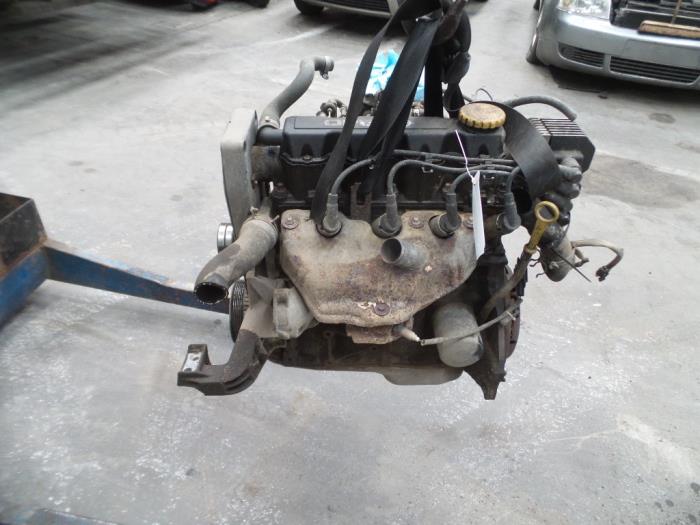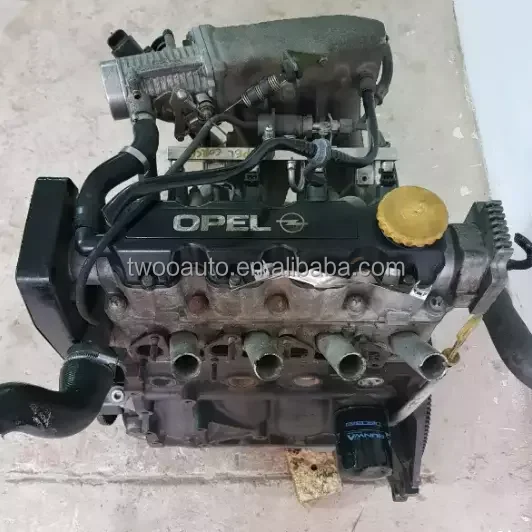Upgrade Your Ride: Opel Corsa 1.4 Engine Price Options Galore at Auto Parts Depot
Upgrade Your Ride: Opel Corsa 1.4 Engine Price Options Galore at Auto Parts Depot
Blog Article
Engine Acquiring Expert Tips on Selecting the Right Engine for Your Specific Needs
Selecting the best engine for your certain requirements includes a complicated interaction of aspects that exceed plain horse power numbers. From power outcome to sustain effectiveness, the decision-making process can be intimidating. Comprehending the subtleties of engine kinds, dimensions, and their compatibility with your lorry is essential. However, there are expert tips that can help browse this surface with self-confidence. By delving into the intricacies of power versus efficiency, reviewing gas scores, and budgeting for long-lasting costs, one can truly maximize their engine option.
Power Vs. Efficiency: Locating the Balance
When picking an engine, it is critical to strike an equilibrium between power and effectiveness to meet your details requirements efficiently. Power refers to the engine's capacity to generate power for propulsion, figuring out elements like velocity, hauling ability, and general efficiency - Opel Corsa 1.4 Engine Price. On the other hand, performance associates to how well the engine uses gas to generate power, affecting factors such as gas economy and ecological kindness
Achieving the appropriate balance between power and performance is important due to the fact that an engine that is too powerful might consume extreme gas, bring about higher operating expense and unneeded strain on the atmosphere. Alternatively, an engine that prioritizes efficiency over power may cause slow-moving performance, particularly in requiring scenarios like towing heavy tons or driving uphill.
To make an educated choice, consider factors such as your common driving problems, the desired usage of the vehicle, and your personal preferences. By assessing your requirements and top priorities, you can select an engine that strikes the ideal equilibrium between power and effectiveness, making certain ideal performance while reducing environmental effect and operating prices.
Comprehending Engine Dimension and Kind
To better improve the option procedure of an engine that strikes the optimum equilibrium in between power and effectiveness, it is crucial to look into the details of recognizing engine dimension and kind. Engine size refers to the total quantity of air and gas that can be pressed with the engine cylinders. It is usually determined in liters or cubic centimeters. Larger engine dimensions usually cause even more power outcome but can also bring about lowered gas effectiveness. On the other hand, smaller sized engine sizes are often extra fuel-efficient yet may sacrifice some power.
Common engine kinds consist of inline engines, V engines, and rotary engines, each with its special advantages and disadvantages. Recognizing the interplay in between engine dimension and type is crucial in picking an engine that aligns with your certain needs and concerns, whether it be power, performance, or a balance of both.

Consider Your Vehicle's Needs
Considering your automobile's requirements is a basic action in the engine option process to ensure ideal performance and performance. It is important to review aspects such as the intended usage of the vehicle, its weight, pulling capacity, and gas efficiency requirements. If you are looking for an engine for a durable vehicle a knockout post that will be utilized for towing, you will certainly need a powerful engine with high torque capacities. On the other hand, if you are choosing an engine for a portable automobile largely used for city commuting, gas performance may be a much more critical element to consider.
If you frequently drive in hilly or uneven areas, a robust engine with excellent climbing up power will be required. By aligning the engine requirements with your automobile's demands, you can guarantee that your vehicle runs effectively and satisfies your performance assumptions.
Reviewing Fuel Performance Scores
Evaluating gas effectiveness ratings is an important aspect of picking the ideal engine for your vehicle, ensuring price savings and ecological sustainability. Gas efficiency rankings, usually measured in miles per gallon (MPG) for gas engines or kilowatt-hours per 100 miles (kWh/100 miles) for electric engines, show how much a car can take a trip on a particular quantity of fuel or electricity. Greater MPG or More about the author reduced kWh/100 miles values indicate a lot more efficient engines, equating to reduced gas costs and lower carbon exhausts.
When assessing gas efficiency rankings, consider your driving habits and demands. A highly fuel-efficient engine can result in considerable financial savings over time if you commute long distances daily. Furthermore, contrast different engine choices within the very same vehicle class to recognize one of the most economical option. Variables such as engine size, weight, aerodynamics, and hybrid or electrical capacities can all influence fuel effectiveness.
Budgeting for Long-Term Costs
Strategically intending for long-lasting costs is important when selecting an engine, making certain financial sustainability over the automobile's Click Here life expectancy. While the initial acquisition cost of an engine is a significant variable, it is vital to think about the long-term expenses associated with upkeep, repair work, and gas usage.
Furthermore, looking into the accessibility and cost of substitute parts for the chosen engine is vital in spending plan planning. Engines with conveniently available and budget friendly parts can substantially impact long-lasting maintenance costs. Additionally, thinking about the engine's resilience and anticipated lifespan can assist stay clear of unforeseen substitute prices in the future. By very carefully budgeting for these lasting costs and factoring them right into the decision-making process, people can pick an engine that not only fulfills their instant demands however additionally stays affordable throughout its life expectancy.
Verdict
In final thought, selecting the ideal engine for your specific demands requires stabilizing power and efficiency, comprehending engine size and type, considering your car's demands, reviewing fuel effectiveness scores, and budgeting for long-lasting expenses. By very carefully taking into consideration these variables, you can make certain that you pick an engine that satisfies your requirements and supplies ideal performance for your vehicle.
To better improve the choice process of an engine that strikes the optimum equilibrium between power and efficiency, it is necessary to dig into the details of recognizing engine size and type. Engine dimension refers to the overall volume of air and gas that can be pushed with the engine cylinders. Typical engine types consist of inline engines, V engines, and rotating engines, each with its special advantages and drawbacks. Recognizing the interplay between engine dimension and kind is crucial in selecting an engine that straightens with your particular demands and concerns, whether it be power, efficiency, or an equilibrium of both.

Report this page